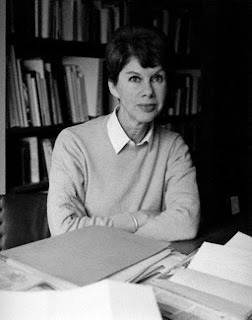Actually, I have made a list of reading intentions for the New Year--particularly the beginning of the New Year. I have quite a towering TBR pile of books I've accumulated in the past few months.
I want to read The Vanity Fair Diaries by Tina Brown. I greatly admire her and have for many decades. And I think I admire her most for how breathtakingly vital she made The New Yorker while she was editor, in the years preceding her tenure at Vanity Fair. After she left, The New Yorker retrenched and eventually hired the throwback David Remnick as editor in 1998, who absolutely REFUSES TO HIRE women journalists to do any investigative journalism for his precious magazine. He publishes the occasional woman writer's short story or poem, but no serious journalism. Personally, I don't think it helps The New Yorker's circulation. Circulation was very high when Tina Brown was editor. Sorry, David. You belong to the 1950s. And so does The New Yorker's circulation. How sad for such a historically prestigious magazine. How difficult for David Remnick to realize--women buy magazines, too.
In other reading, I'm investigating historical climatology--the effect of climate, especially climate change, on historical events and epochs. Has this ever been a fascinating line of research for me this week! I'm particularly interested in the climate of The Little Ice Age, which lasted from the 1500s through the 1700s. Fascinating, but deep reading. I'm especially interested in the effect of climate on the settlement of New England in the 1600s. Wow...
For pleasure, I'm still reading Elin Hilderbrand's Winter Solstice, the fourth and final volume in her Quinn Family or Winter Street Inn Nantucket novels. Oh, gosh!! I have followed this series, book by book, and it's very, very good. ***It looks as though my current proclivity for lighter reads of fiction is still very much with me. And I only have POTUS to thank, really, for making me see how important it is to nurture one's soul very, very well when all hell is breaking loose in this country. Thank you, to all my readers, for allowing me to be frank.
Wanderlust Bingo 2026
5 hours ago






















